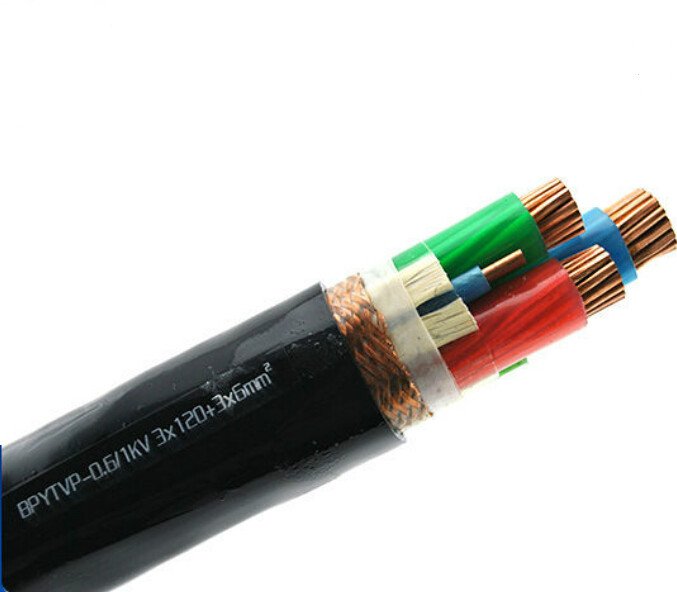
The outermost layer of the power cable is generally a rubber or rubber composite sleeve. The function of this layer is to insulate and protect the cable from damage.
Power cable, divided into high voltage or low voltage cable. If it is high pressure, there will be a layer of resin-like filler inside, which is used for insulation.
In high-voltage cables, this layer is the most essential part of the insulation.
There is no such thing in the low pressure, and then there will be something like a ribbon wrapped in it, in order to fix each core of the cable and fill the gap in the middle.
The shielding layer of the power cable has two functions: one is because the current passing through the power cable is relatively large, and a magnetic field is generated around the current.
In order not to affect other components, the shielding layer can be used.
The electromagnetic field is shielded in the cable; the second is to provide certain grounding protection.
If the cable core is damaged, the leaked current can flow along the shielded layer, such as the grounding grid, to play the role of safety protection.
The control cable is in many places, especially the control cable of the computer system.
The shielding layer here is used to shield the external influence, because its current is very weak, and it is terrified of the external electromagnetic field.
The power cable should have a conductive core, an insulating layer, and a protective layer.
Detailed classification (high voltage, the low voltage will not be said): conductive core, inner semi-conductive layer, insulation layer, outer semi-conductive layer, copper shield, filler, inner liner, double steel strip protective layer, outer sheath.
These parts are made up! The above description is for the 10kV power cable.